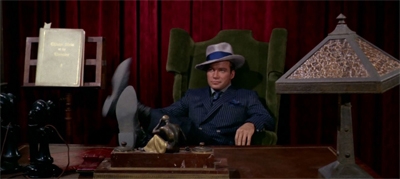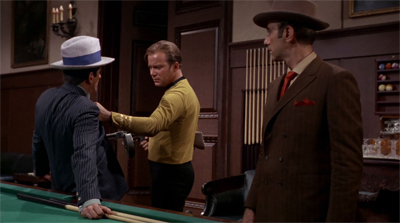I had the pleasure of catching a Jameson Cult Film Club screening of The Blues Brothers earlier this evening. And it was awesome. Really, really great night. Might have been the best yet. I’ll have more details on it later in the week, but now seems like a good time to revisit the classic.
It’s 106 miles to Chicago, we got a full tank of gas, half a pack of cigarettes, it’s dark… and we’re wearing sunglasses.
Hit it.
– Elwood and Jake
It might seem a bit redundant to say it, but The Blues Brothers has soul. Not just the funky music, though it has plenty of that. Nor an evangelical message, although the two brothers are, as they claim, “on a mission from God.” No, The Blues Brothers has a core of pure exuberance, a sense of joy that is all too rare – it doesn’t seem like writers Dan Ackroyd and John Landis threw ideas at the wall to see what stuck, so much as they demolished the wall and threw it at another wall. The Blues Brothers is, by turns, absurd, wry, grounded, sarcastic, charming, heartwarming and sardonic, with those elements frequently overlapping to an almost insane degree. In many ways, like John Belushi’s scheming, manipulative and aggressive Jake Elwood, it’s far more charming than it really should be. But we love it for it.

It’s a dirty business…
Continue reading →
Filed under: Non-Review Reviews | Tagged: arts, Blues Brother, Chicago, Dan Aykroyd, Elwood, films, Illinois, Jake, John Belushi, John Candy, john landis, Movies, non-review review, Rawhide, Ray Charles, review, Steven Williams | 4 Comments »



























